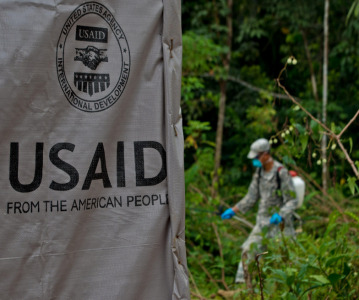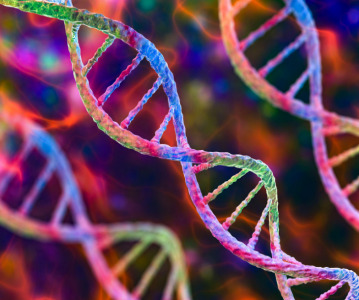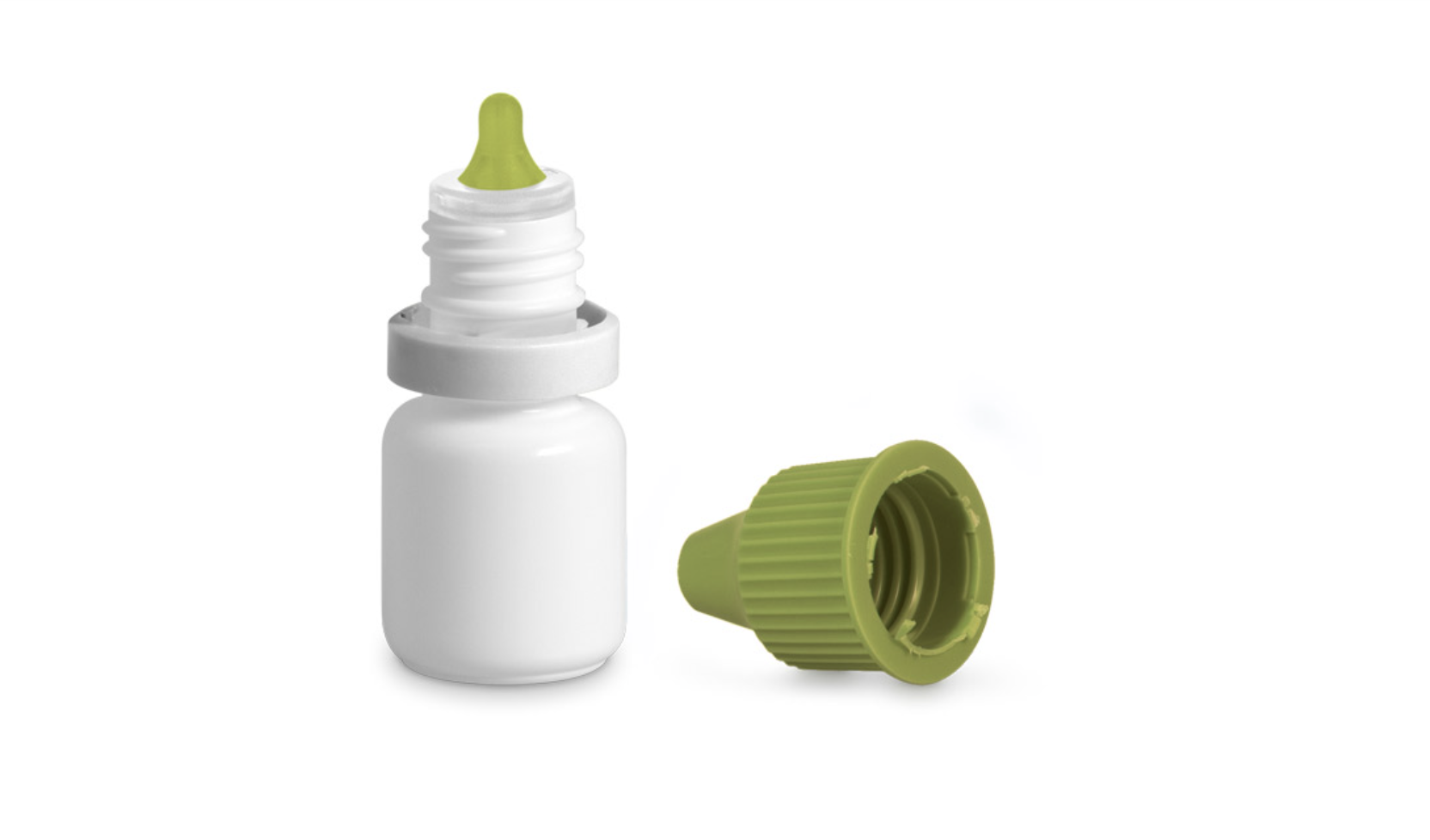Lassa virus antibody cocktail could be the first step in developing a vaccine
.png)
Cover of Science Translational Medicine, Credit: Niámh Mundy, Phospho Biomedical Animation.
A research team from La Jolla Institute for Immunology in California, USA, have identifed a trio of antibodies that could be used to neutralize the Lassa virus
Researchers from La Jolla Institute for Immunology (LJI; CA, USA) have shown how a concoction of antibodies could be used to develop a vaccine for Lassa virus.
Lassa virus, a virus endemic to West Africa, gives rise to Lassa fever, which causes flu-like symptoms and affects around 300,000 people each year. The fever can lead to more severe symptoms and be fatal; pregnant women are particularly vulnerable with 90% of infections leading to death.
The Lassa virus has been under investigation by the Saphire lab at LJI for several years, studying images of the Lassa virus glycoprotein so that they can identify weaknesses – epitopes – that could be taken advantage of in finding a treatment option.
Recently, the researchers were able to isolate three rare antibodies from the blood of survivors of Lassa virus infection, with the hope that therapeutics based on these antibodies could be developed.
Initially, it was thought that antibodies would not be effective in protecting against Lassa virus, but by studying the structural map of the Lassa virus glycoprotein and using a combination of the three neutralising antibodies, the team were able to develop a ‘cocktail’ for testing.
This cocktail – named Arevirumab-3 – was tested in non-human primates, including those with an advanced form of the infection, and was proved to be 100% effective in treating the disease.
The next step was to test the cocktail in humans, where the team ran into a roadblock as the US FDA requires the mechanism of action to be clear before approving the launch of clinical trials.
The team were able to produce a glycoprotein that was an exact copy of the natural protein found on the Lassa virus, and this could be recognised by the three antibodies that made up the cocktail of Arevirumab-3. They then used cryo-electron microscopy single-particle analysis to produce high-resolution structural images of all of the elements, along with functional assays to show exactly how each of the antibodies bind to the glycoprotein.
“Lassa has another trick. It shields itself using a thick coat of human carbohydrate molecules—like a wolf in sheep’s clothing,” explained Erica Ollmann Saphire, lead researcher from LJI, “Haoyang’s [Haoyang Li, Instructor in the Saphire Lab, LJI] structures clearly show how these potent, protective antibodies breach or even utilize the carbohydrates to target and neutralise the virus.”
The stages of research have been published throughout the past year.
Saphire stated: “This body of work now offers the first-ever full-epitope map, revealing every vulnerable target of the Lassa glycoprotein.”
From this, the team will be able to move Arevirumab-3 into clinical trial phases and hopefully develop a vaccine to protect against Lassa virus in the near future.
Related News
-
News US FDA adds haemodialysis bloodlines to devices shortage list
On March 14, 2025, the US FDA published an open letter to healthcare providers citing continuing supply disruptions of haemodialysis bloodlines, an essential component of dialysis machines. -
News Women in Pharma: Manufacturing personal and team success
Our monthly Women in Pharma series highlights the influential lives and works of impactful women working across the pharmaceutical industry, and how the industry can work towards making the healthcare industry and workplace more equitable and inclusive... -
News Pfizer may shift production back to US under Trump pharma tariffs
At the 45th TD Cowen annual healthcare conference in Boston, USA, Pfizer CEO Albert Bourla outlined the potential for Pfizer to shift its overseas drug manufacturing back to the US as pharmaceutical industry players weigh their options against Presiden... -
News Experimental drug for managing aortic valve stenosis shows promise
The new small molecule drug ataciguat is garnering attention for its potential to manage aortic valve stenosis, which may prevent the need for surgery and significantly improve patient experience. -
News Women in Pharma: Connecting accessible pharma packaging to patients – a Pharmapack Special
Throughout our Women in Pharma series, we aim to highlight how CPHI events encourage discussions around diversity, equity, and inclusion initiatives in the pharmaceutical industry. -
News Vertex Pharmaceuticals stock jumps as FDA approves non-opioid painkiller
UK-based Vertex Pharmaceuticals saw their stock shares soar as the US FDA signed off on the non-opioid painkiller Journavx, also known as suzetrigine, for patients with moderate to severe acute pain, caused by surgery, accidents, or injuries. -
News Trump administration halts global supply of HIV, malaria, tuberculosis drugs
In various memos circulated to the United States Agency for International Development (USAID), the Trump administration has demanded contractors and partners to immediately stop work in supplying lifesaving drugs for HIV, malaria, and tuberculosis to c... -
News 2024 Drug Approvals: a lexicon of notable drugs and clinical trials
50 drugs received FDA approval in 2024. The centre for biologics evaluation and research also identified six new Orphan drug approvals as under Biologics License Applications (BLAs). The following list picks out key approvals from the list, and highlig...
Recently Visited
Position your company at the heart of the global Pharma industry with a CPHI Online membership
-
Your products and solutions visible to thousands of visitors within the largest Pharma marketplace
-
Generate high-quality, engaged leads for your business, all year round
-
Promote your business as the industry’s thought-leader by hosting your reports, brochures and videos within your profile
-
Your company’s profile boosted at all participating CPHI events
-
An easy-to-use platform with a detailed dashboard showing your leads and performance











